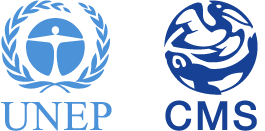13th Meeting of the Conference of the Parties to the Convention on Migratory Species of Wild Animals (CMS COP13)
Migratory Species Connect the Planet and Together We Welcome Them Home
15-22 February 2020 | Gandhinagar, India
Summary Highlights
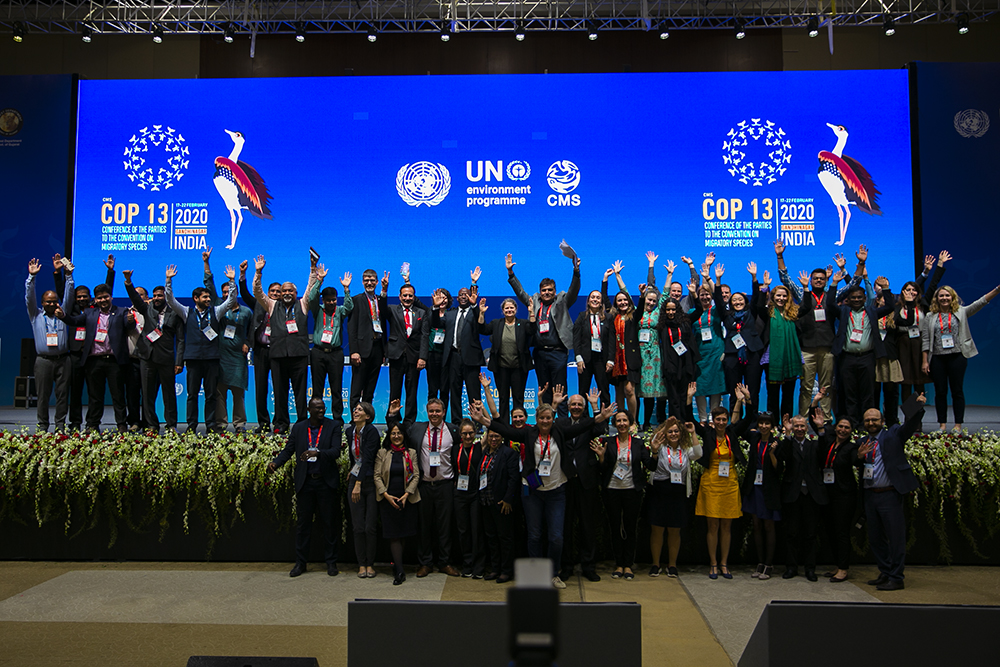
The 13th Meeting of the Conference of the Parties to the Convention on Migratory Species of Wild Animals (CMS COP13) convened under the theme, “Migratory species connect the planet and together we welcome them home.” CMS COP13 marked the first in a series of international biodiversity conferences in 2020, which will culminate with the UN Biodiversity Conference in Kunming, China, in October, which is expected to adopt a new global biodiversity framework. With this in mind, CMS parties adopted the Gandhinagar Declaration, which calls for migratory species and the concept of “ecological connectivity” to be integrated and prioritized in the new global biodiversity framework.
Ten new species were added to the CMS Appendices, of which seven were added to Appendix I, which comprises migratory species that are in danger of extinction throughout all or a significant portion of their range. These include the Asian elephant, jaguar, great Indian bustard, Bengal florican, little bustard, antipodean albatross and the oceanic white-tip shark. The Urial sheep, smooth hammerhead shark, and the tope shark were listed for protection under Appendix II, which covers migratory species that have an unfavorable conservation status and that require international cooperation for their conservation and management. New and extended Concerted Actions with targeted conservation plans were approved for 14 species.
COP13 also agreed on the following measures benefiting migratory species:
- integrate biodiversity and migratory species considerations into national energy and climate policy and promote wildlife-friendly renewable energy;
- strengthen initiatives to combat the illegal killing, taking, and trade of migratory birds;
- mitigate the impacts of linear infrastructure on migratory species;
- deepen the understanding of the importance of animal culture and social complexity for the conservation of endangered species; and
- investigate possible trade in CMS Appendix I species and the implications for their conservation status.
Highlights for Saturday, 22 February 2020
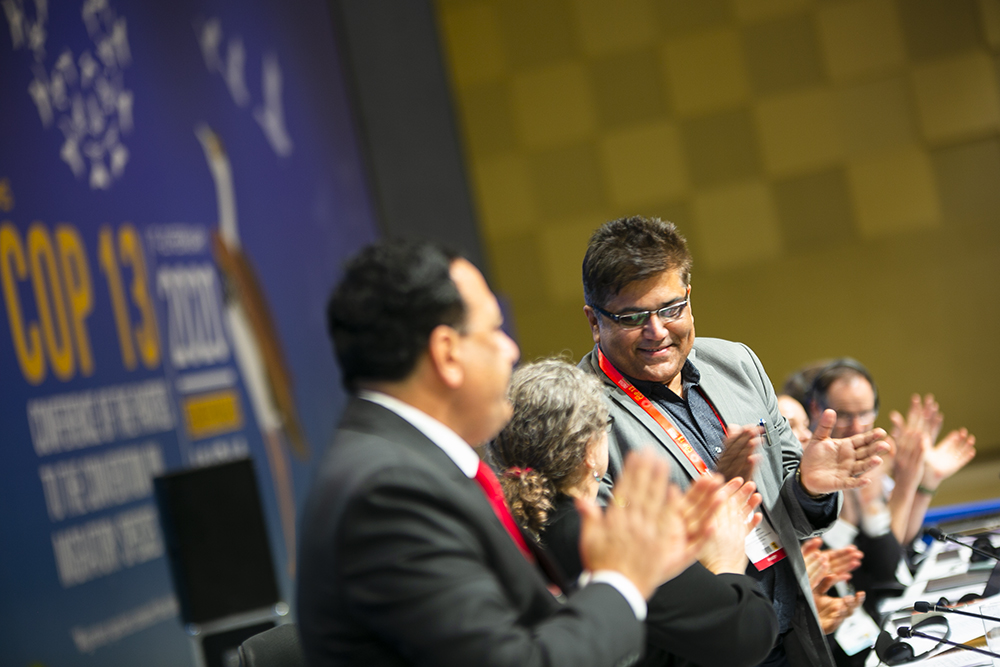
The Committee of the Whole (CoW) of the thirteenth meeting of the Conference of the Parties (CMS COP13) resumed Saturday morning to approve the remaining conference room papers and forward them to the COP for adoption.
The COP opened in the afternoon and adopted by consensus all resolutions, decisions, and amendments to the appendices forwarded from the CoW. The CoP also adopted the Gandhinagar Declaration, which affirms that maintaining and restoring ecological connectivity is one of the top priorities for CMS, and calls for ecological connectivity and the important role of CMS to be effectively reflected in the Post-2020 Global Biodiversity Framework.
Amy Fraenkel, Executive Secretary, CMS, thanked Fernando Spina and Øystein Størkersen for their work in chairing the Scientific Council and the Standing Committee, respectively. Regional groups then presented their nominations for the Standing Committee and Scientific Council, which were accepted by the COP.
In her closing remarks, South Africa lamented the loss of migratory species predicted to go extinct if no urgent action is taken. She recognized the importance of listing species under the appendices to avert extinction and asked parties to step up efforts to implement the Convention.
France announced it would make a voluntary contribution to a project linking connectivity of migratory species and ecosystem resilience.
The EU highlighted progress made during this COP. She underscored the escalating threats facing biodiversity, and that listings of species in CMS’ appendices should not be celebrated but rather catalyze greater action to protect them. She also noted that the greatest successes are achieved together through cooperation. Finally, she called on parties with contributions in arrears to make their due payments.
Fraenkel highlighted that CMS COP13 was the largest ever in the history of the Convention, with 2,550 people attending including 263 delegates representing 82 Parties, 11 delegates from five non-Party countries, 50 representatives from UN agencies, 70 representatives of international NGOs, 127 representatives of national NGOs, and over 100 members of both national and international media. She underscored that ten new species were added to CMS Appendices at COP13, including seven to Appendix I: the Asian Elephant, Jaguar, Great Indian Bustard, Bengal Florican, Little Bustard, Antipodean Albatross and the Oceanic White-tip Shark.
The COP was gavelled to a close at 5:18 pm.
+ Visit the web coverage for Saturday, 22 February 2020
IISD Reporting Services, through its Earth Negotiations Bulletin (ENB) Meeting Coverage, has provided daily web coverage, daily reports, and producde a summary and analysis report from CMS COP13 which is now available in HTML and PDF.
Photos by IISD/ENB | Sean Wu
For photo reprint permissions, please follow instructions at our Attribution Regulations for Meeting Photo Usage Page
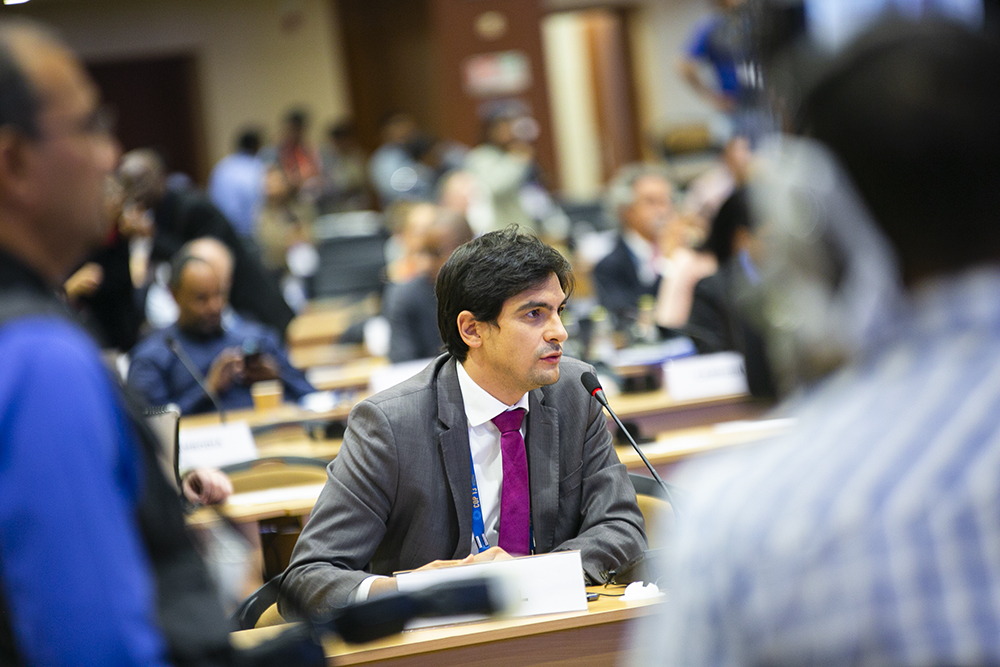
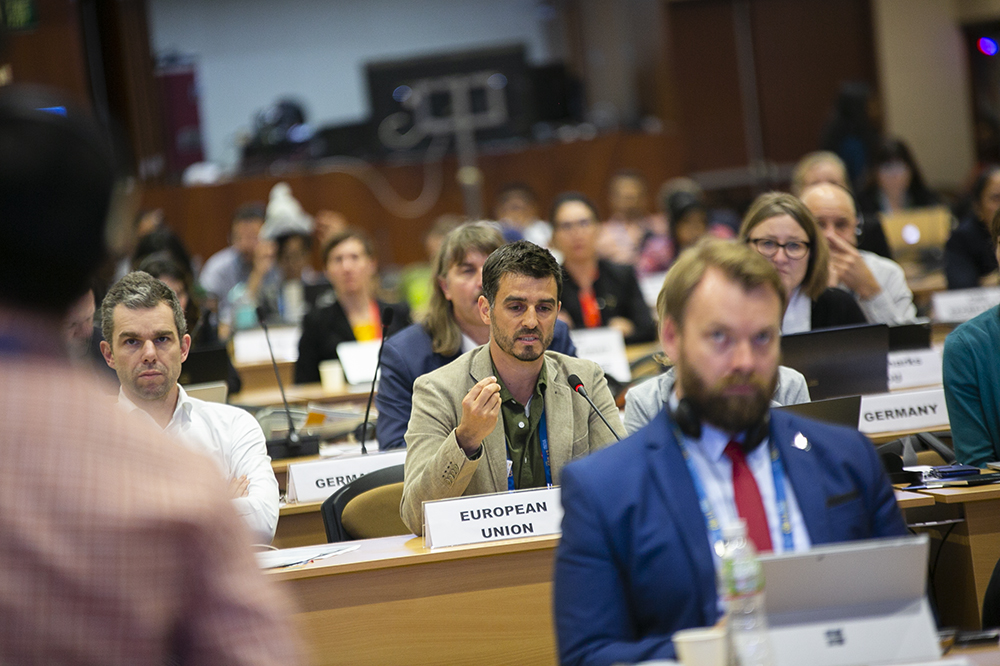
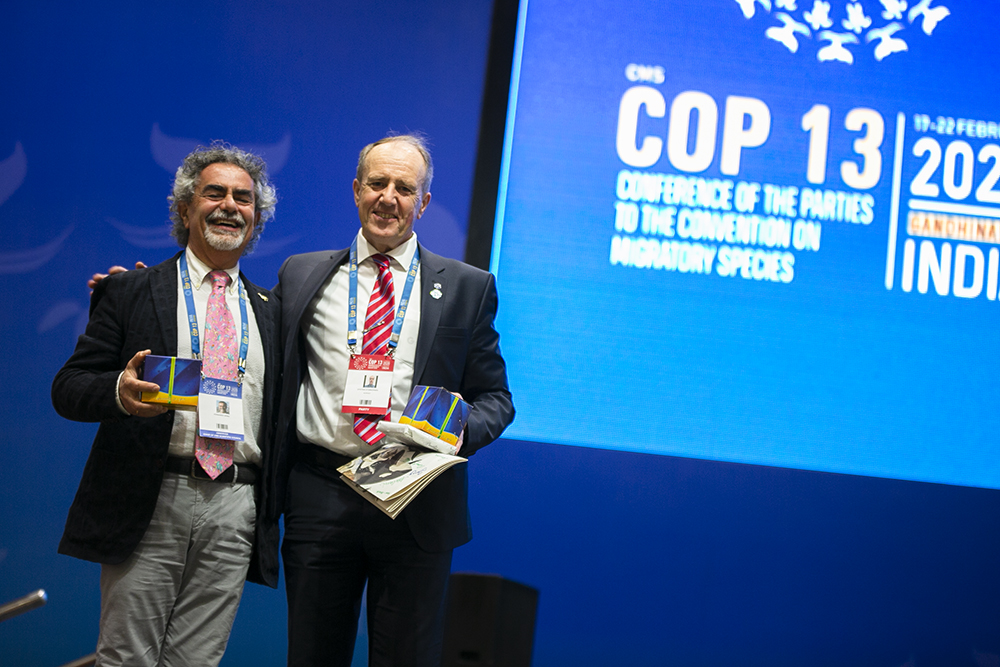
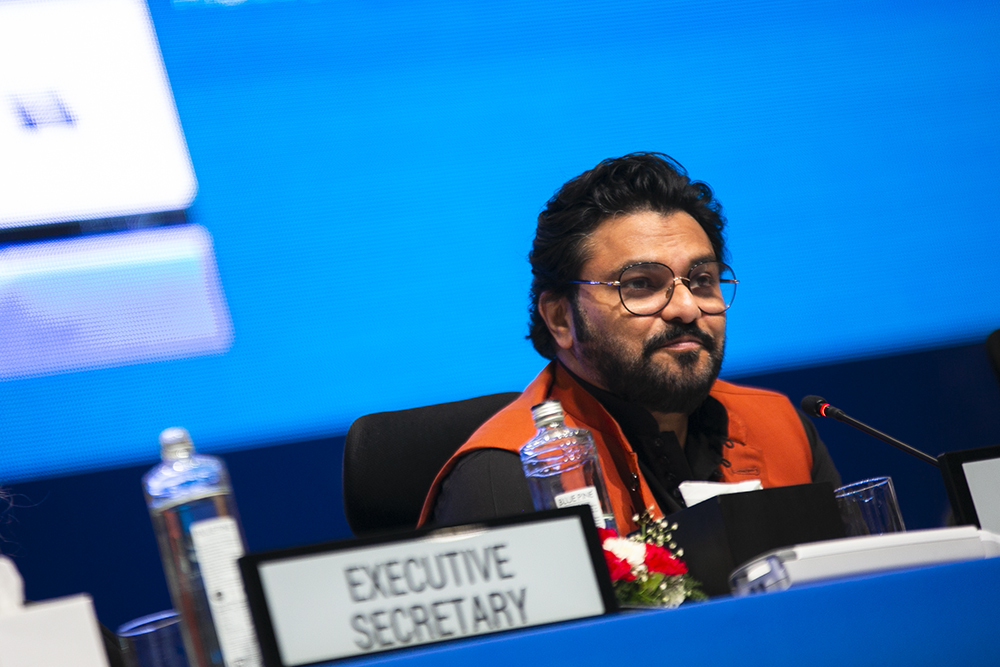
Highlights for Thursday, 20 February 2020

Chair Akankwasah Barirega (Uganda) opened the Committee of the Whole (CoW) with reports from Chairs of Working Groups: the Budget and Terrestrial Species Working Groups reported that they are on track to finish their work by the end of the day. The Chair of the Avian Working Group said that a contact group will meet in the evening to discuss outstanding issues, including illegal killing.
The CoW Chair also noted that nominations for COP-appointed councillors had been received in each subject area, and requested that Australia chair an open contact group to review them and make selection recommendations.
The CoW then proceeded to consider and adopt listing proposals in CMS Appendices, including:
- Jaguar, proposed for inclusion in Appendix I and II, due to severe threats to its migratory corridors and habitats;
- Urial sheep, proposed for inclusion in Appendix II, with annotation that the listing concerns only populations within the Central Asian Mammals Initiative (CAMI) range;
- Great Indian bustard, proposed for inclusion in Appendix I, including the development of a concerted action, due to the highly endangered status of the species;
- Bengal florican, proposed for inclusion in Appendix II;
- Little bustard, proposed for inclusion in Appendix I and II, due to severe declines;
- Antipodean albatross, proposed for inclusion in Appendix I, due to its endangered status and its importance for the Ngāi Tahu, a Māori indigenous tribe in New Zealand; and
- Oceanic white-tip shark, proposed for inclusion in Appendix I, due to its critically endangered status and it being targeted for its fins and meat.
There were also two proposals with different geographical scope to list the smooth hammerhead shark; one by Brazil for the regional population occurring in the exclusive economic zone of Brazil, Uruguay, Argentina, and adjacent international waters, and one by the EU for all populations worldwide. In their introductory statements, Brazil referred to the species' unfavourable conservation status and it being targeted by artisanal and industrial fisheries, while the EU emphasized that the species was highly migratory. While many parties supported a global listing, Australia opposed the listing for its population, deploring that it had not been duly consulted before the proposal was made, and explaining that the population in the vast Australian waters does not meet the migratory criterion. After Australia's proposal to exempt its population from the scope had received both support and opposition by parties, the matter was put to a vote: With 9 in favor, 47 opposed, and 5 abstentions, Australia's proposal was rejected. In the subsequent vote, the EU's global listing proposal was approved with 58 in favor, 1 opposed, and 3 abstentions. In both votes, the EU voted with 28 votes including the UK, while several votes by other parties could not be counted due to unconfirmed credentials. The proposal was forwarded to the COP for adoption.
For more details on the day’s negotiations and to hear what delegates said in the corridors, see our daily Earth Negotiations Bulletin.
+ Visit the web coverage for Thursday, 20 February 2020
Photos by IISD/ENB | Sean Wu
For photo reprint permissions, please follow instructions at our Attribution Regulations for Meeting Photo Usage Page
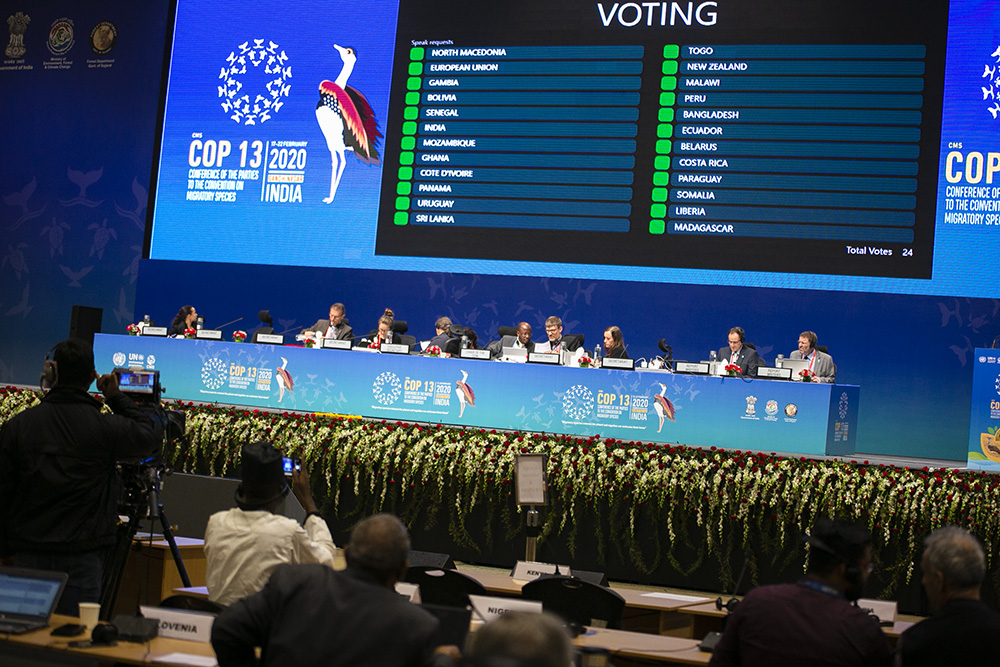
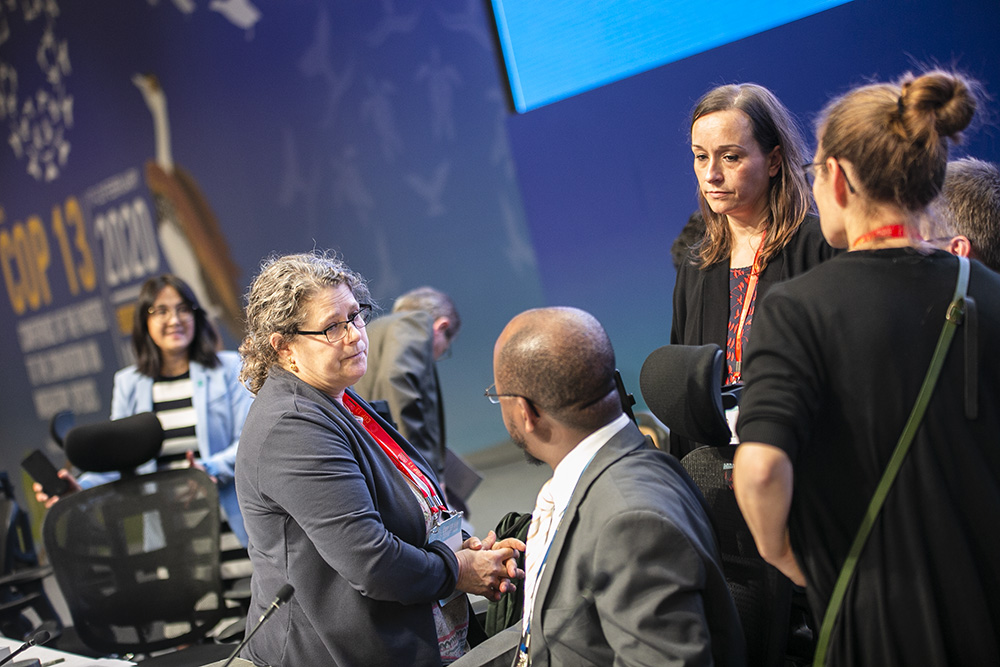
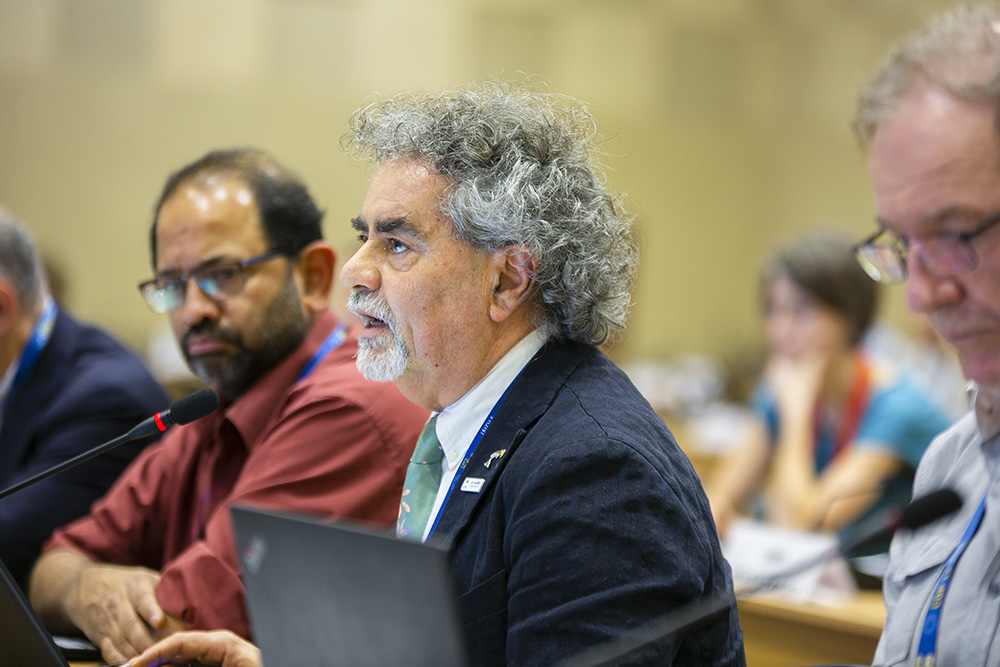
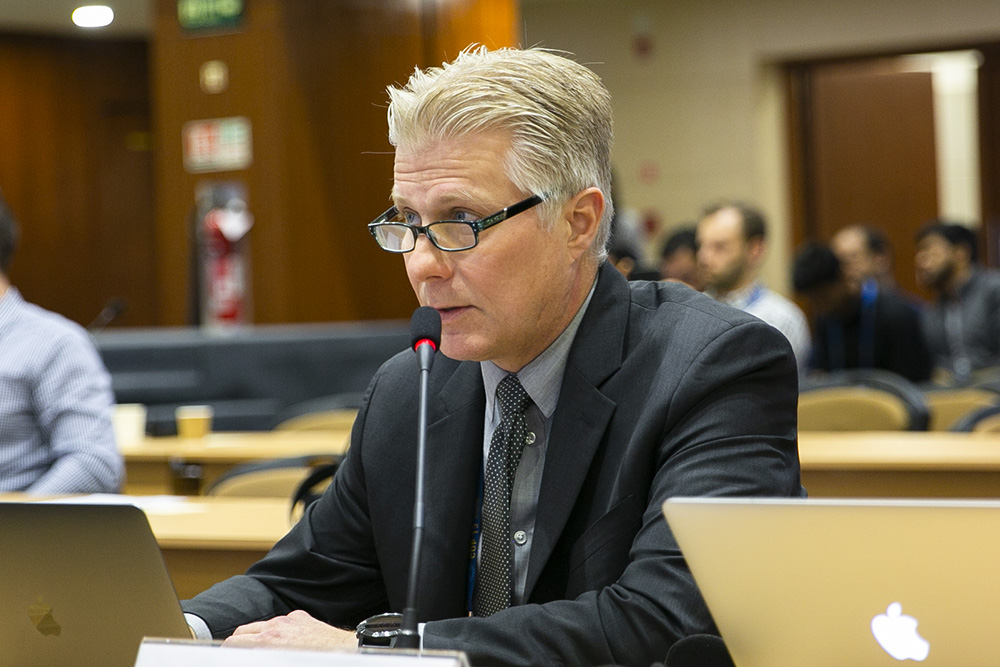
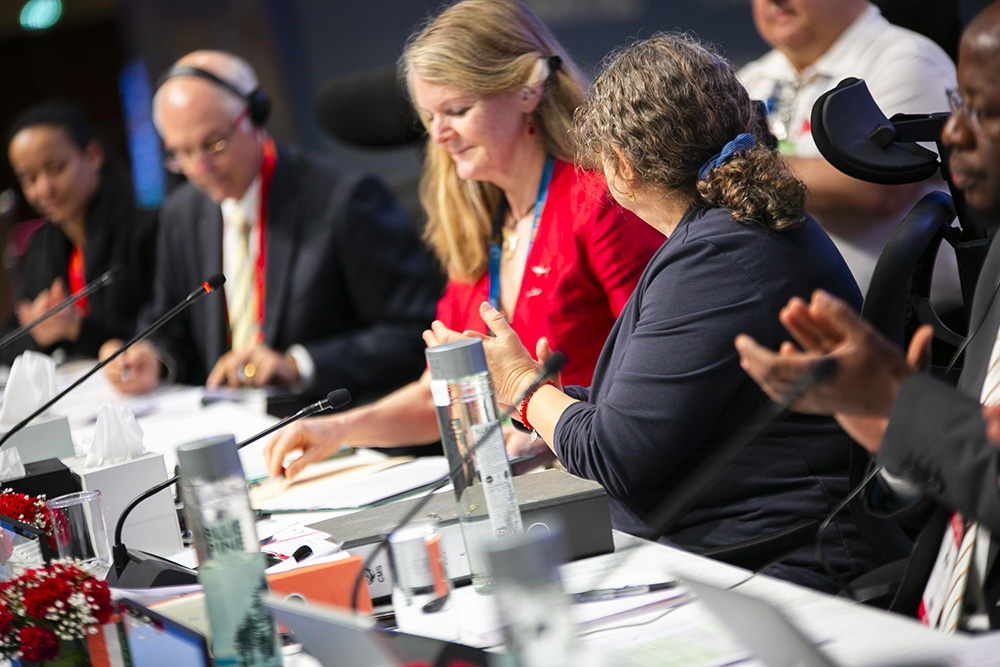
Highlights for Wednesday, 19 February 2020

Chair Akankwasah Barirega (Uganda) opened the Committee of the Whole (CoW) of the 13th meeting of the Conference of the Parties to the Convention on the Conservation of Migratory Species of Wild Animals (CMS COP13), followed by an update on progress from the Friends of the Chair Contact Group, the Budget Working Group, the Avian Species Working Group, Terrestrial Species Working Group, and the Aquatic Species Working Group.
The CoW moved swiftly through a long list of agenda items related to the conservation of terrestrial species, as well as cross-cutting issues, including:
- the joint Convention on International Trade in Endangered Species of Wild Flora and Fauna (CITES)-African Carnivores Initiative, a collaborative initiative on the management of lion, leopard, cheetah, and wild dog populations across 27 range states, which many parties supported;
- the conservation of the African Wild Ass, with Ethiopia and Senegal noting the importance of engaging local communities in their conservation;
- the Central Asian Mammals Initiative (CAMI), supported by Mongolia, EU, UK, Switzerland, Uzbekistan, and the Wildlife Conservation Society (WCS);
- the application of Article III of the Convention, with the EU, UK, Australia, New Zealand, Zimbabwe, Norway, and CITES calling for an intersessional working group to clarify the nature and scale of the impact of international trade on the conservation status of CMS Appendix I-listed species before reconsidering this issue at COP14;
- the reservations with respect to Amendments to Appendices I and II of the Convention, with Israel highlighting that reservations undermine the goals and effectiveness of the Convention
- the review of the conservation status of migratory species, with the EU noting its deep concern that biological resource use is a significant threat facing migratory species; and
- the conservation implications of animal culture and social complexity, highlighting that a number of socially complex mammalian species, such as several species of cetaceans, great apes, and elephants, show evidence of having non-human culture and that highly social species face unique conservation challenges.
In the evening, working groups established by the CoW reconvened.
For more details on the day’s negotiations and to hear what delegates said in the corridors, see our daily Earth Negotiations Bulletin.
+ Visit the web coverage for Wednesday, 19 February 2020
Photos by IISD/ENB | Sean Wu
For photo reprint permissions, please follow instructions at our Attribution Regulations for Meeting Photo Usage Page
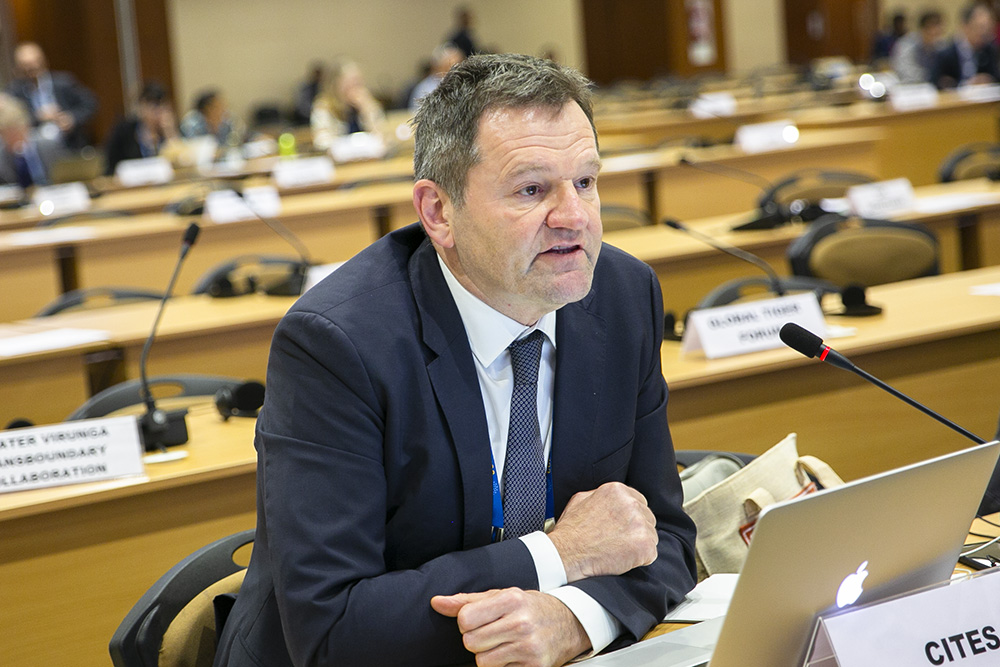
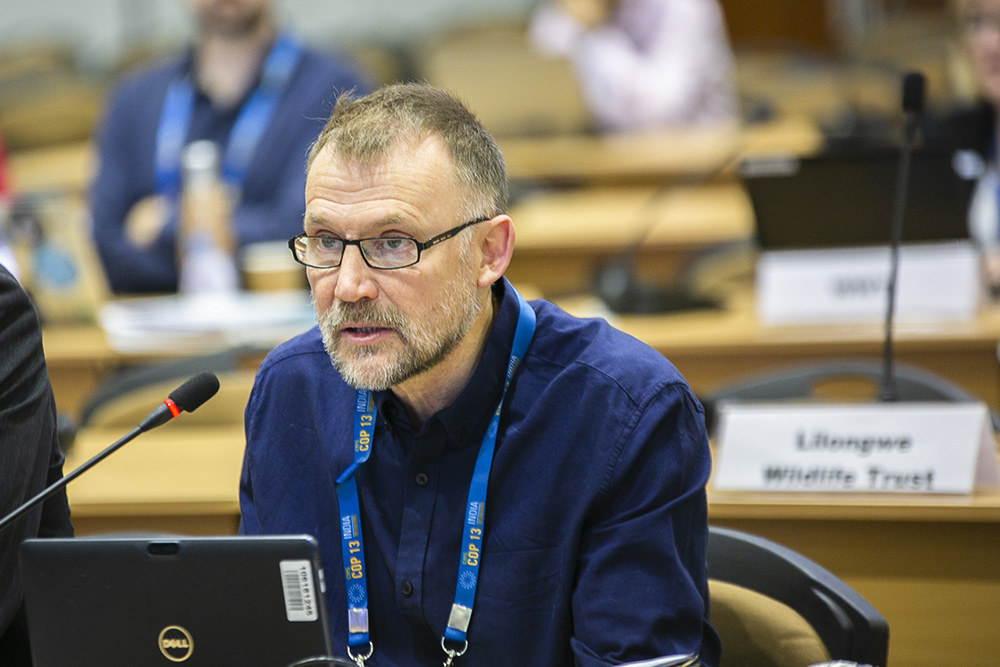
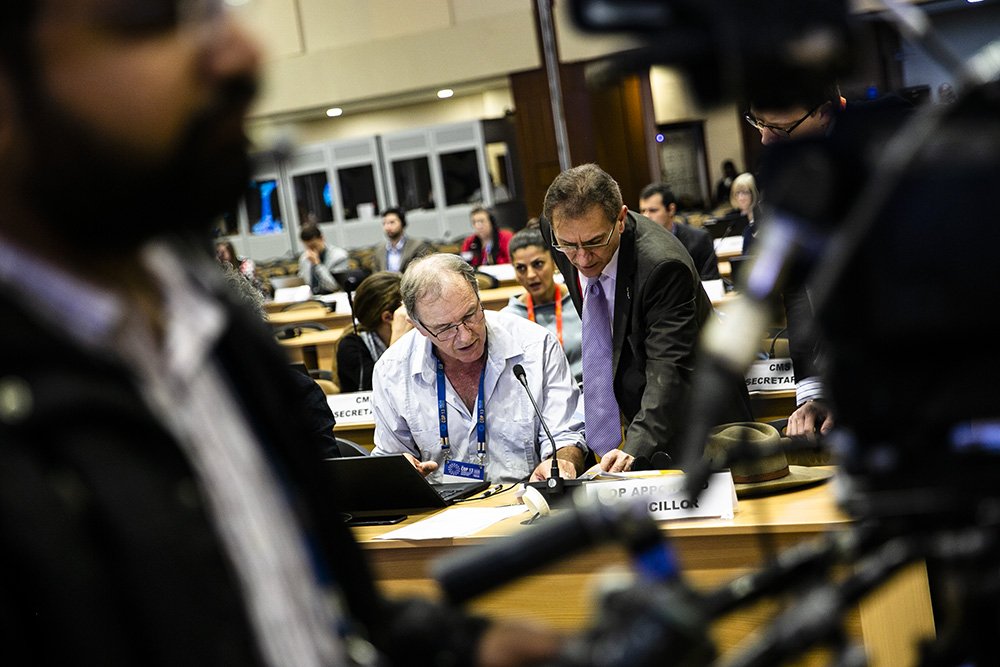
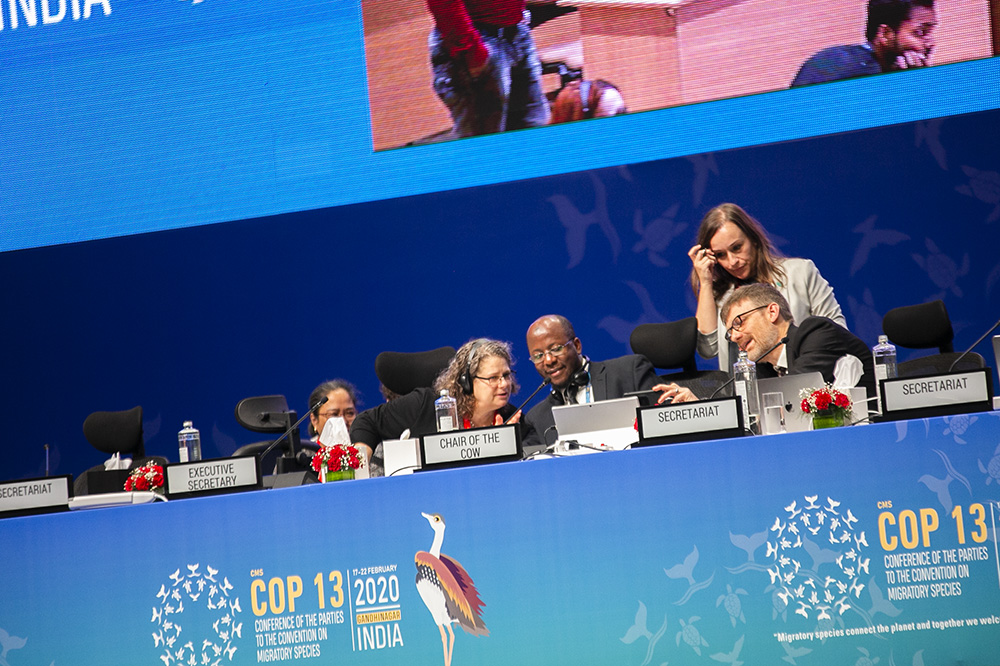
Highlights for Tuesday, 18 February 2020

The Committee of the Whole (CoW) met throughout the day. On budget, the Secretariat reported to the CoW that despite the widespread acknowledgement that migratory species are at a critical crossroads, funding is sorely lacking, with arrears totally nearly €1 million and only 14% of the Programme of Work (PoW) funded. She lamented that this has detracted from the Secretariat’s work and prevented key staffing positions from being filled, leading to a “downward spiral”.
Drawing attention to the fact that the Secretariat only received 14% of the budget required to implement the 2018-2020 Programme of Work, and was facing unprecedented levels of arrears, she urged parties pay their arrears and to make their annual contributions early if possible. She noted that:
- Scenario 1, which involves no increase to the 2018-2020 budget, would require cuts to certain CMS activities and services;
- Scenario 2 accounts for inflation in the budget and for staff development to strengthen Secretariat capacity;
- Scenario 3, a 12.71% increase, would allow for critical staffing increases; and
- Scenario 4, a 2.82% further increase, would enable the analysis of national reports, and production of a “State of the World's Migratory Species Report.”
UK, Switzerland, Seychelles, and Bangladesh called for urgent action to stop the loss of migratory wildlife and their habitats, and for parties to be ambitious not only with regard to targets and work plans, but when discussing and deciding the budget. UK, supported by Switzerland, Israel, Australia and New Zealand supported the Secretariat's proposal, noting that there are few options available to ensure payment of dues, and that adequate and predictable funding is required for CMS to function properly.
Brazil acknowledged the lack of funding and resulting “deficit of implementation,” but, supported by Argentina, Peru, and Costa Rica, objected to the addition of a clause that would restrict the activities of members in arrears for three years or more, noting that this would affect 20% of members and compromise conservation of migratory species.
The CoW also discussed, among other topics:
- Illegal Killing, Taking and Trade of Migratory Birds
- Migratory Landbirds in the African Eurasian Region
- Prevention of Bird Poisoning
- Important Marine Mammals Areas
- Marine Noise; and
- Bycatch.
In the evening, working groups established by the CoW met, including the Budget Committee and Avian, Terrestrial and Aquatic Working Groups.
At a side event hosted by Toyota and the IUCN Red List of Threatened Species, dignitaries discussed supporting implementation of the Post-2020 Global Biodiversity Framework and the SDGs, and the role business can play in supporting conservation and the transition to a more sustainable world.
For more details on the day’s negotiations and to hear what delegates said in the corridors, see our daily Earth Negotiations Bulletin.
+ Visit the web coverage for Tuesday, 18 February 2020
Photos by IISD/ENB | Sean Wu
For photo reprint permissions, please follow instructions at our Attribution Regulations for Meeting Photo Usage Page
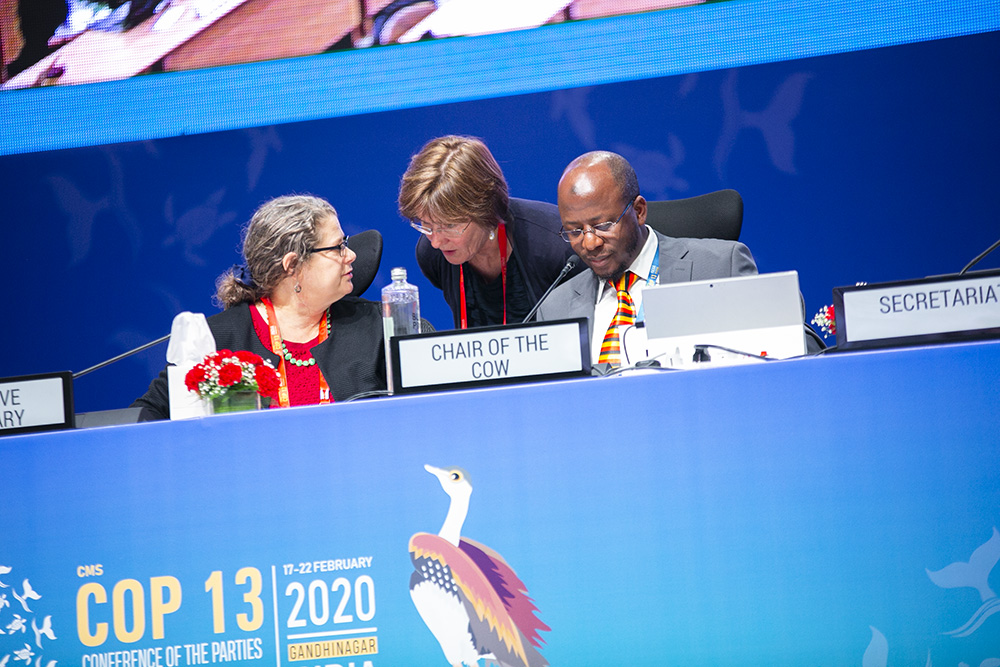
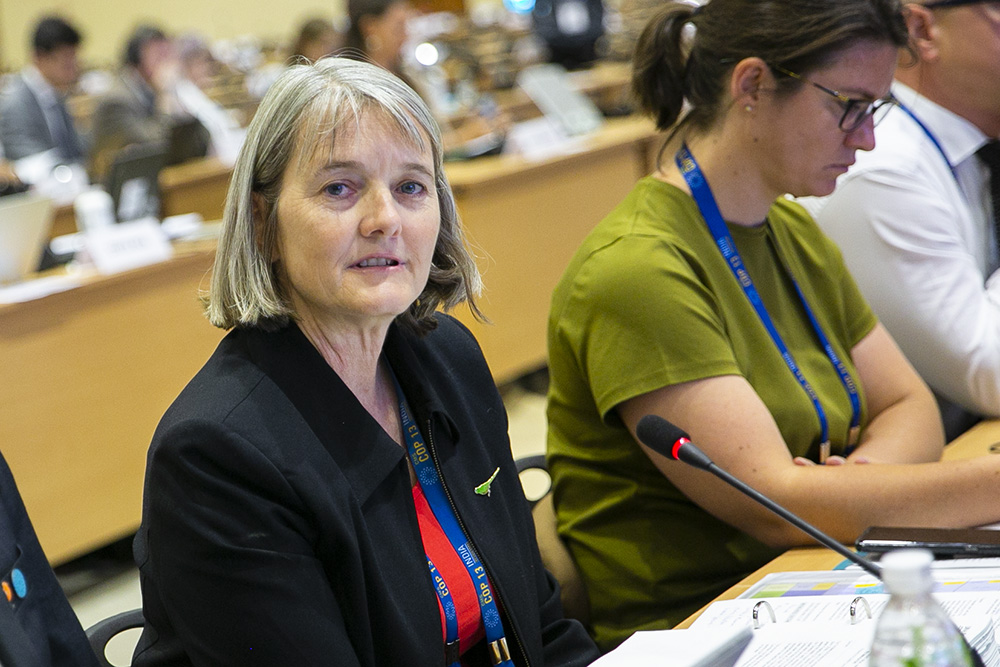
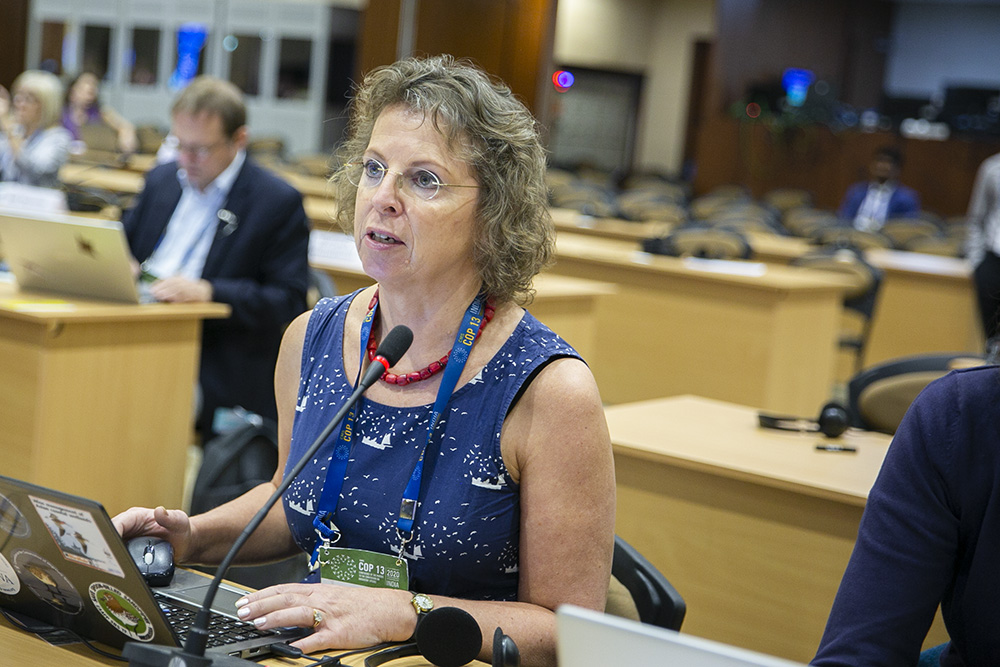
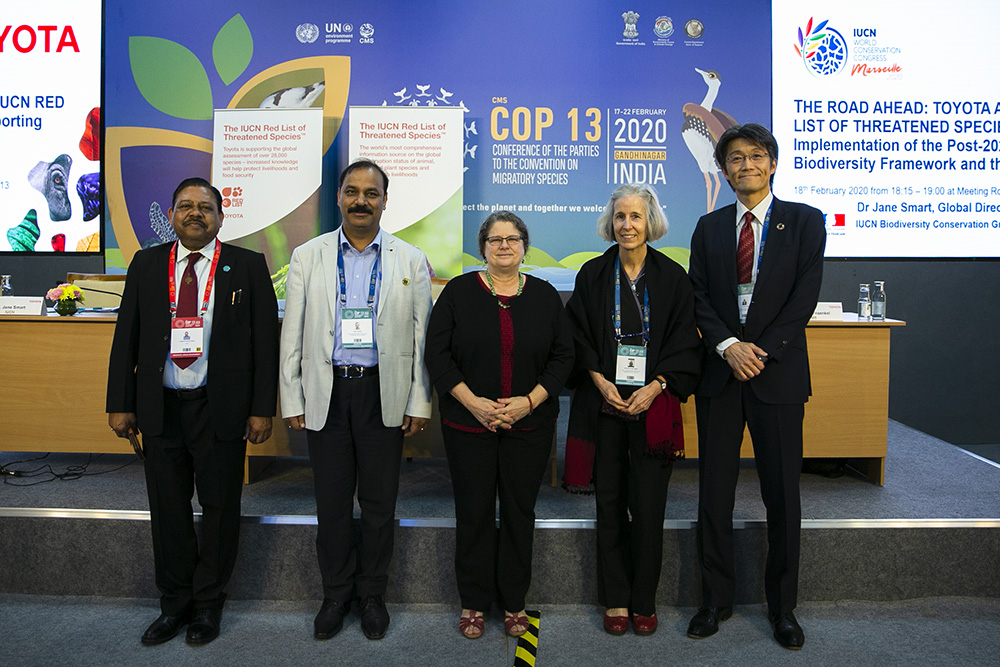
Highlights for Monday, 17 February 2020
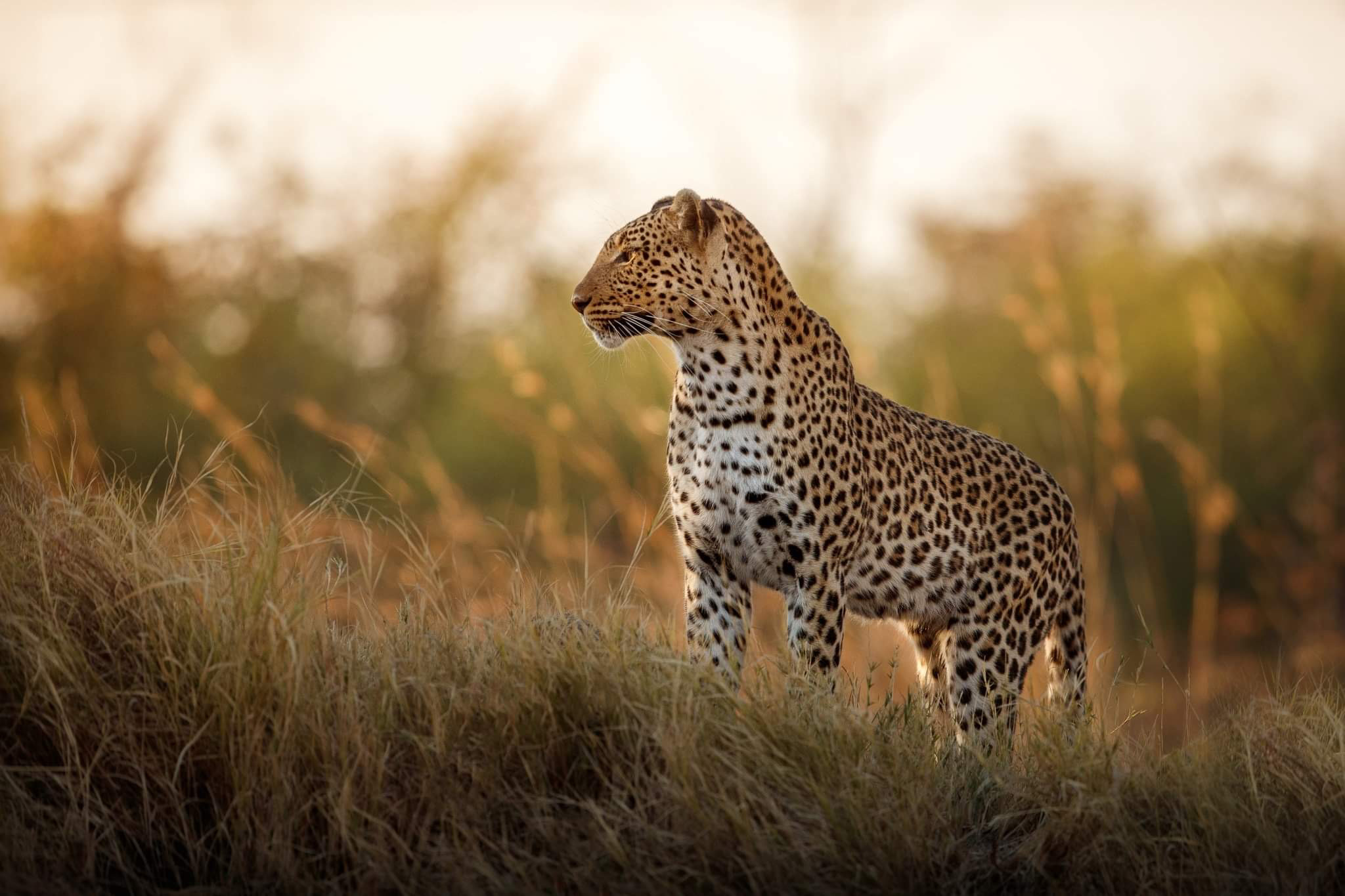
Participants convened in the morning for the official opening of CMS COP13. In the welcoming address, Chandra Kishore Mishra, Secretary, Ministry of Environment, Forest and Climate Change, India, drew attention to his country’s megadiversity and, noting that Gujarat was home to Mahatma Gandhi, called on COP13 participants to champion the freedom of migratory species the way Gandhi championed human freedom.
In a video address, astronaut Luca Parmitano, European Space Agency, observed that the view from space provides clarity on how all earthly systems are deeply connected and crucial to sustaining all life. Drawing attention to the unnatural rate and unprecedented scale of planetary change, he called on CMS COP13 to work to halt the disappearance of migratory species.
Amy Fraenkel, Executive Secretary, CMS, stressed the important role this meeting will play in shaping the Post-2020 Global Biodiversity Framework. In light of dramatic declines in migratory species, she identified a need for ongoing flagship reports for CMS on the “State of the World's Migratory Species.”
Prakesh Javadekar, Minister of Environment, Forestry and Climate Change, India, situated COP13 within the Indian context of rich biodiversity and a cultural respect for nature. Narendra Modi, Prime Minister of India, addressed the COP via video link, and welcomed all participants to the land of Mahatma Gandhi. He highlighted some of the many Indian successes in wildlife conservation including the emblematic tiger, lion, elephant, snow leopard, rhinoceros, and the great Indian bustard. Vijay Rupani, Chief Minister of Gujarat, India, highlighted some of his state's successful conservation efforts and blessed the Gujarat community for their pride in wildlife protection.
John Scanlon, African Parks, gave a heartfelt speech to commemorate the passing of Bradnee Chambers, former Executive Secretary of CMS. He described Chambers’ commitment to improving international environmental governance, both as an academic and as a practitioner. He said Chambers was a major proponent of establishing connectivity between processes, and raised the profile of CMS within the multilateral environmental agreement (MEA) landscape. Scanlon invited delegates to honour his legacy by working together to ensure a strong outcome from COP13.
The COP proceeded to address organizational matters and establish the Committee of the Whole.
In the evening, participants enjoyed a reception organized by India.
For more details on the day’s negotiations and to hear what delegates said in the corridors, see our daily Earth Negotiations Bulletin.
+ Visit the web coverage for Monday, 17 February 2020
Photos by IISD/ENB | Sean Wu
For photo reprint permissions, please follow instructions at our Attribution Regulations for Meeting Photo Usage Page
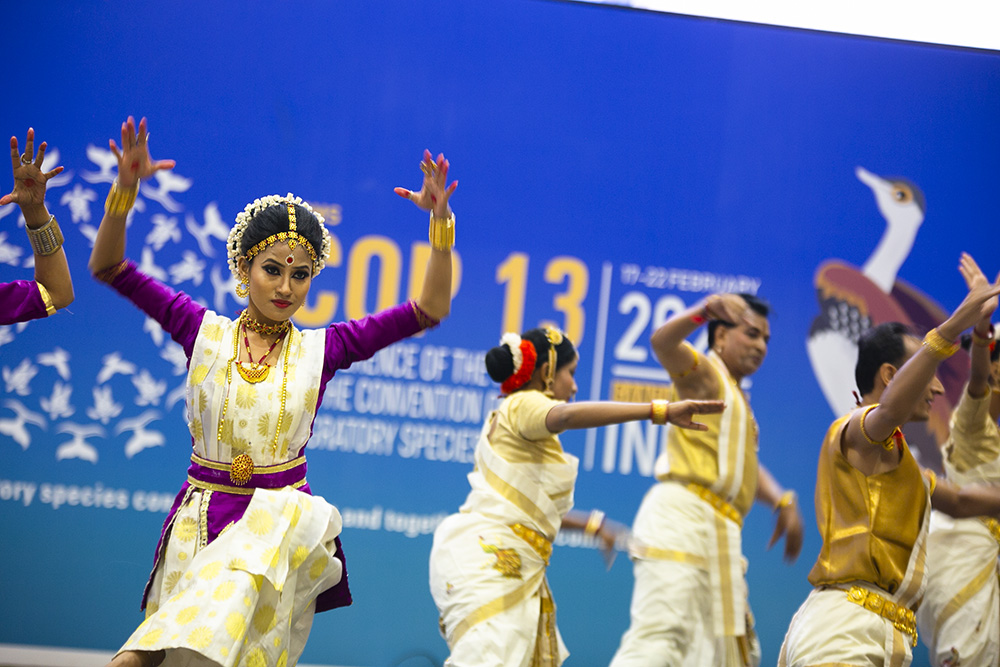
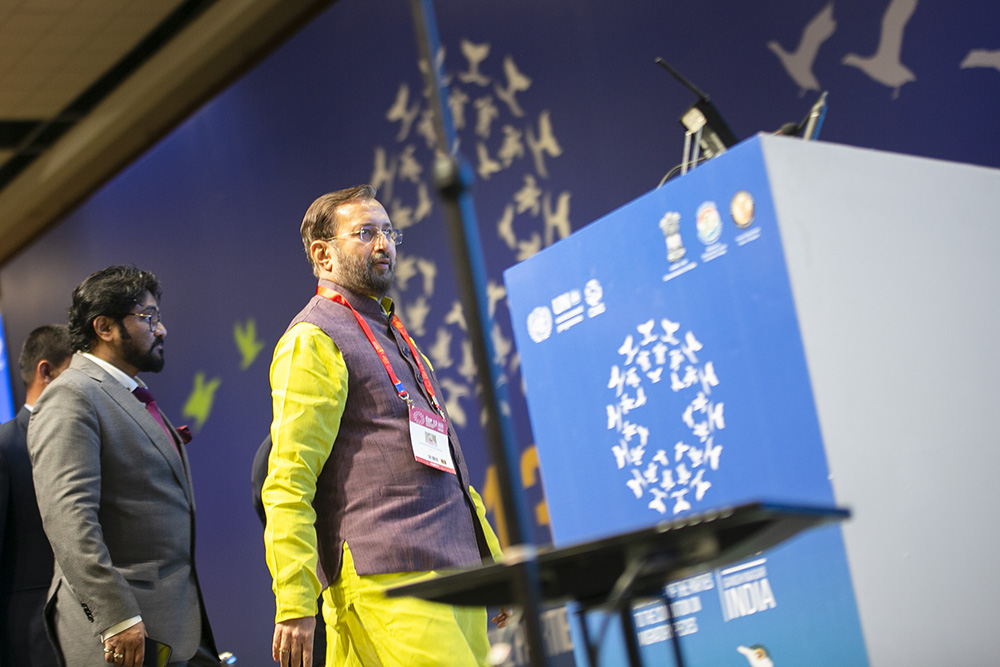
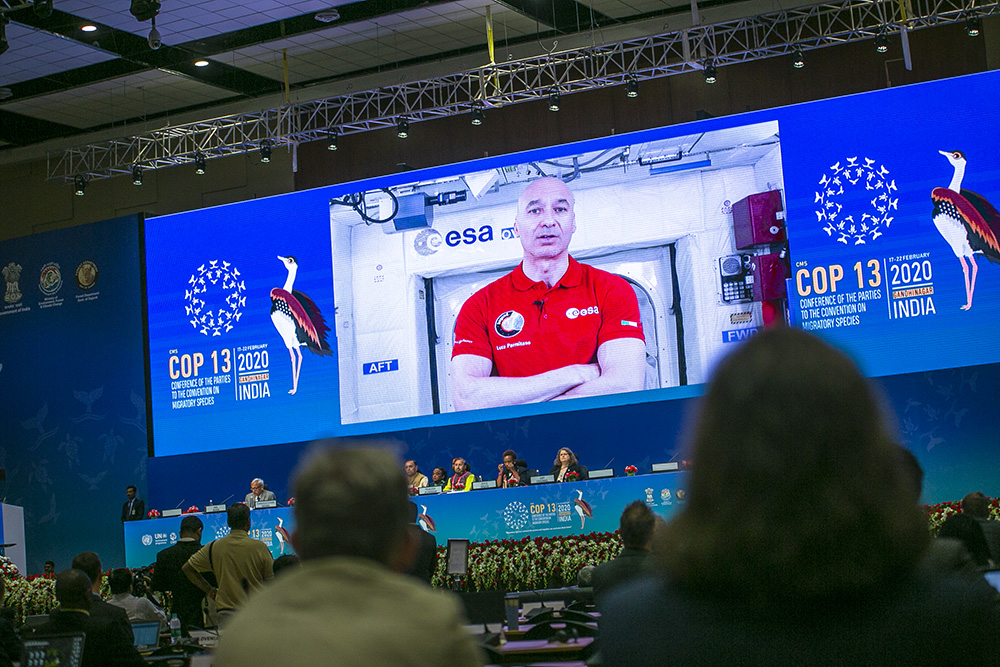
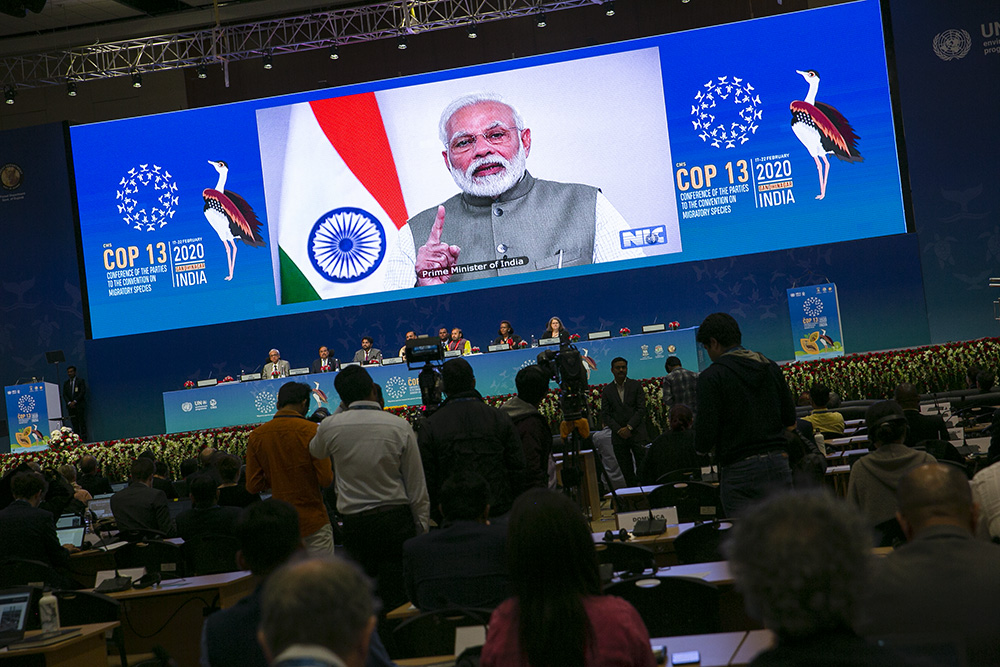
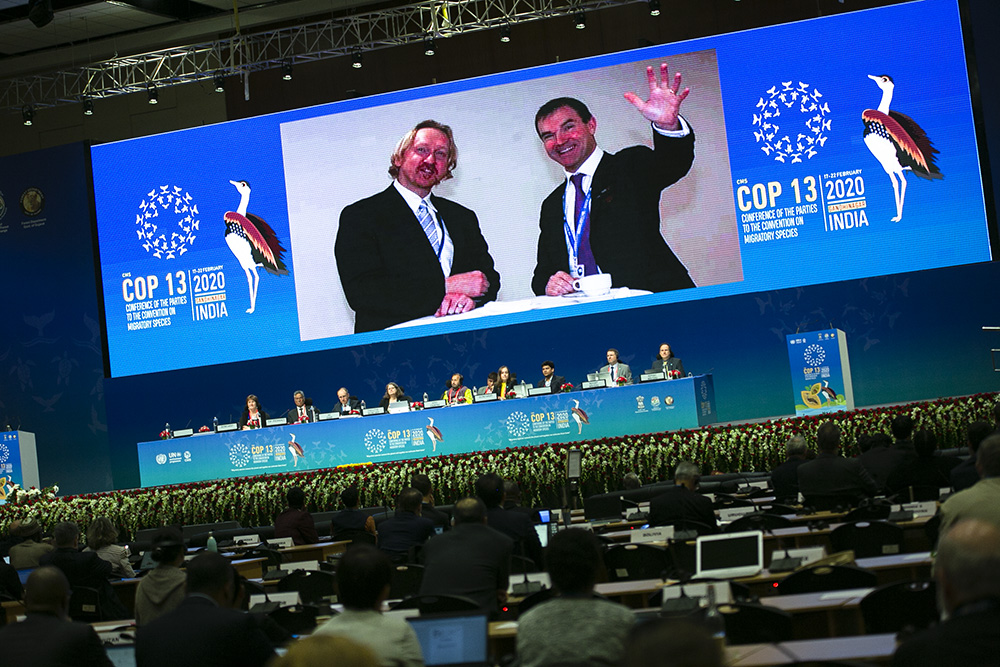
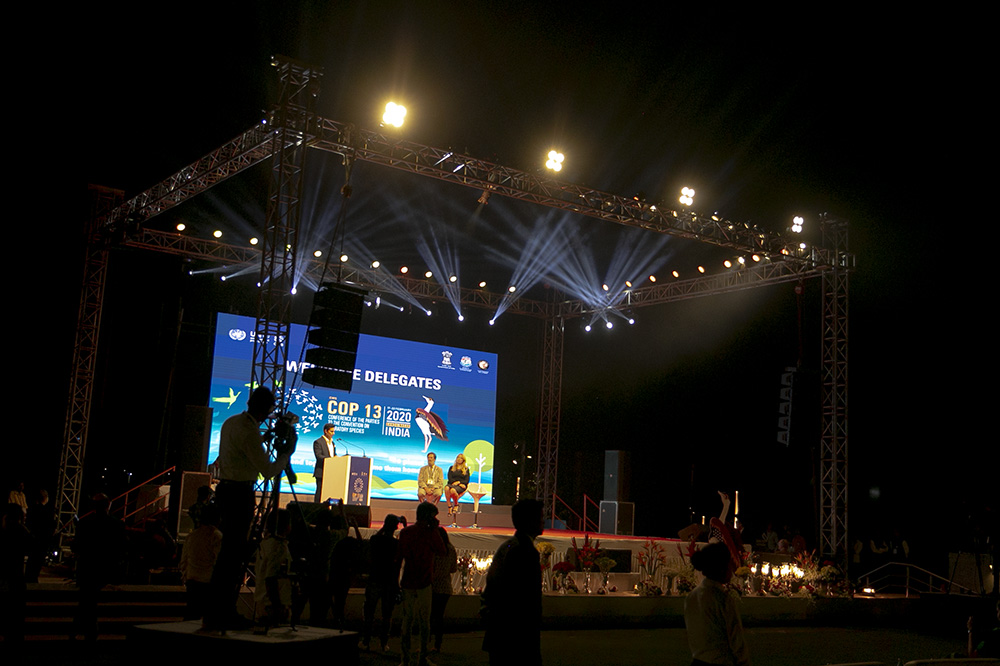
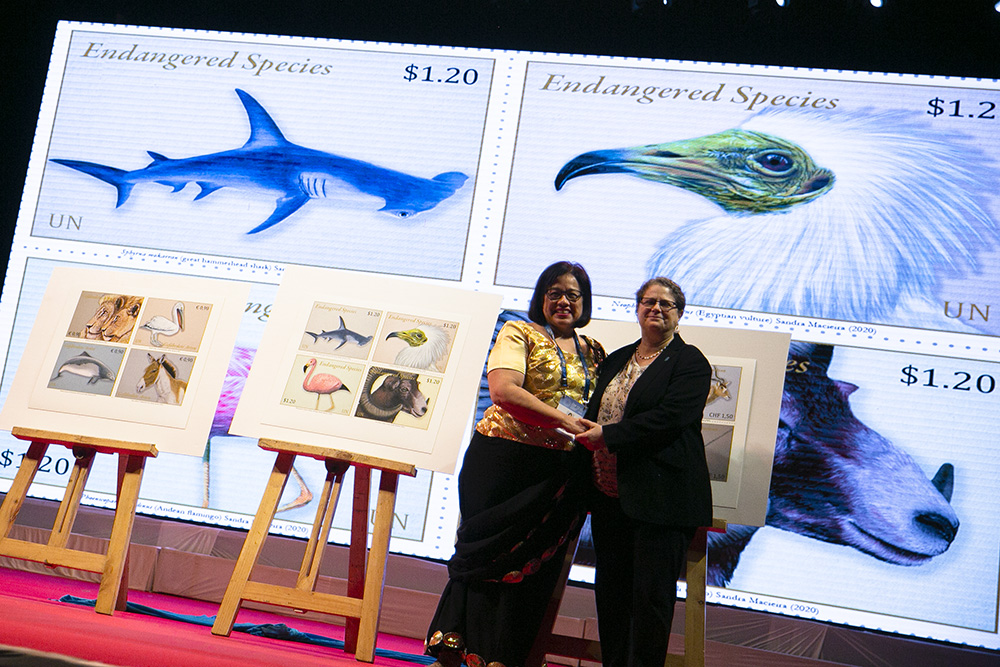
Highlights for Sunday, 16 February 2020

Delegates, non-governmental organizations, and intergovernmental organizations convened for a High-Level Segment to discuss priorities for migratory species conservation in the Post-2020 Global Biodiversity Framework, highlighting the importance of connectivity in tackling the unprecedented threats facing migratory species.
In the first session of the Segment, Ministers described their own work and views on the role and importance of CMS and how its priorities should be reflected in the Framework.
Keshav Javadekar, Minister of Environment, Forestry and Climate Change, India, expressed pride in India’s recent success in recovering tiger, elephant, and rhinoceros populations. Amy Fraenkel, CMS Executive Secretary, remarked that this is the first CMS COP since the Intergovermental Platform for Biodiversity and Ecosystem Services (IPBES) sounded the alarm that we could lose a million species in the coming decade, including many migratory species. Yann Wehrling, France, used the approaching 50th anniversary of the Stockholm Declaration as a reminder for urgent action, including protecting 30 percent of our planet as interconnected nature reserves by 2030.
In the second sessions, representatives of several intergovernmental organizations and multilateral environmental agreements (MEAs) were asked to reflect on the Ministers’ views, CMS, and ecological connectivity.
Elizabeth Maruma Mrema, Convention on Biological Diversity (CBD), noted that the Zero Draft will be simple and transformative and with no more targets than the Aichi Targets. Martha Rojas Urrego, Ramsar Convention on Wetlands, emphasized the importance of preserving habitats, such as wetlands. Ivonne Higuero, Convention on International Trade in Endangered Species of Wild Flora and Fauna (CITES), highlighted the need to include indicators that will measure parties’ success in achieving the new targets in the Framework. John Scanlon, African Parks, noted that CMS is the only convention connecting species with habitats and emphasized that the current Zero Draft fails to make that connection.
For more details on the day’s negotiations and to hear what delegates said in the corridors, see our daily Earth Negotiations Bulletin.
+ Visit the web coverage for Sunday, 16 February 2020
Photos by IISD/ENB | Sean Wu
For photo reprint permissions, please follow instructions at our Attribution Regulations for Meeting Photo Usage Page
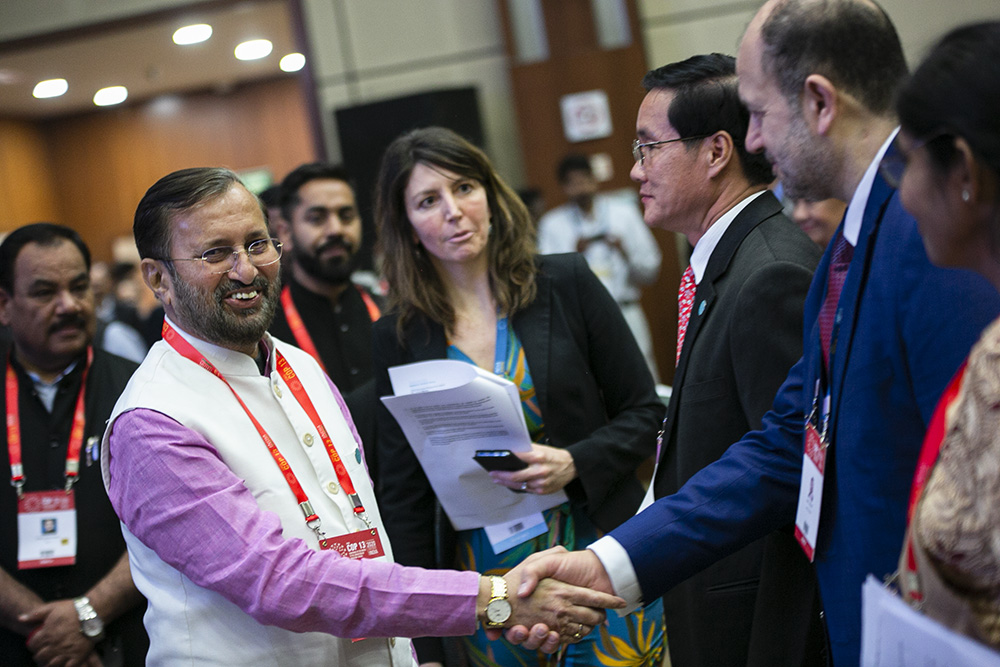
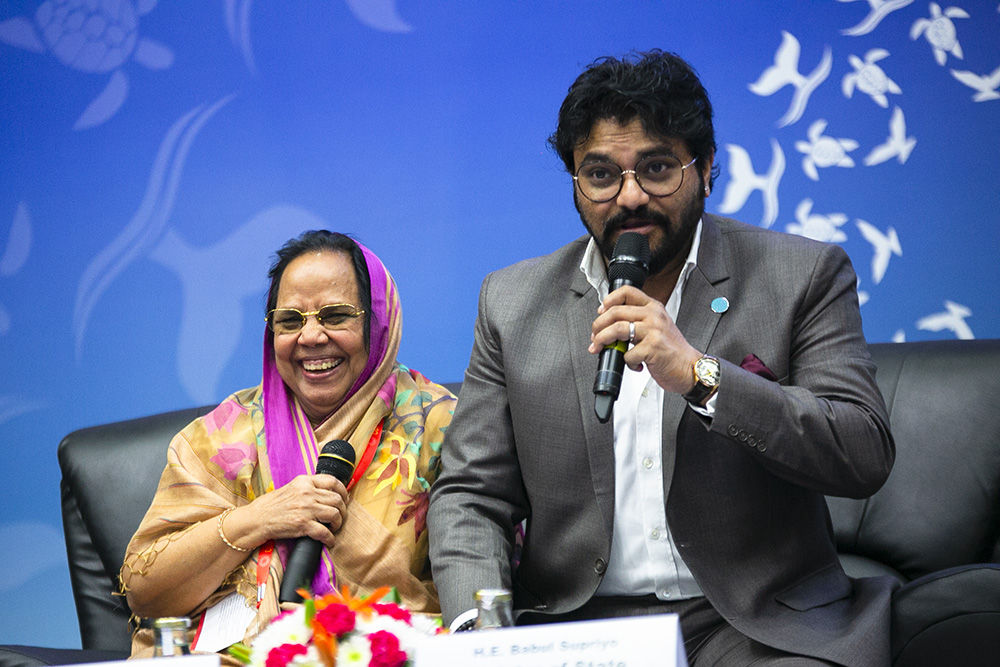
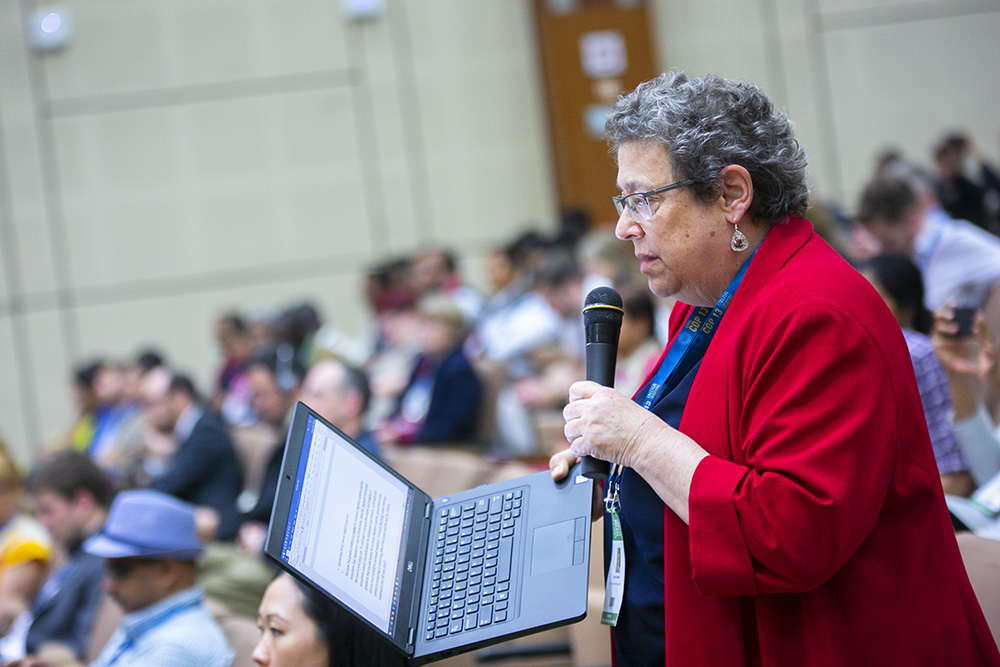
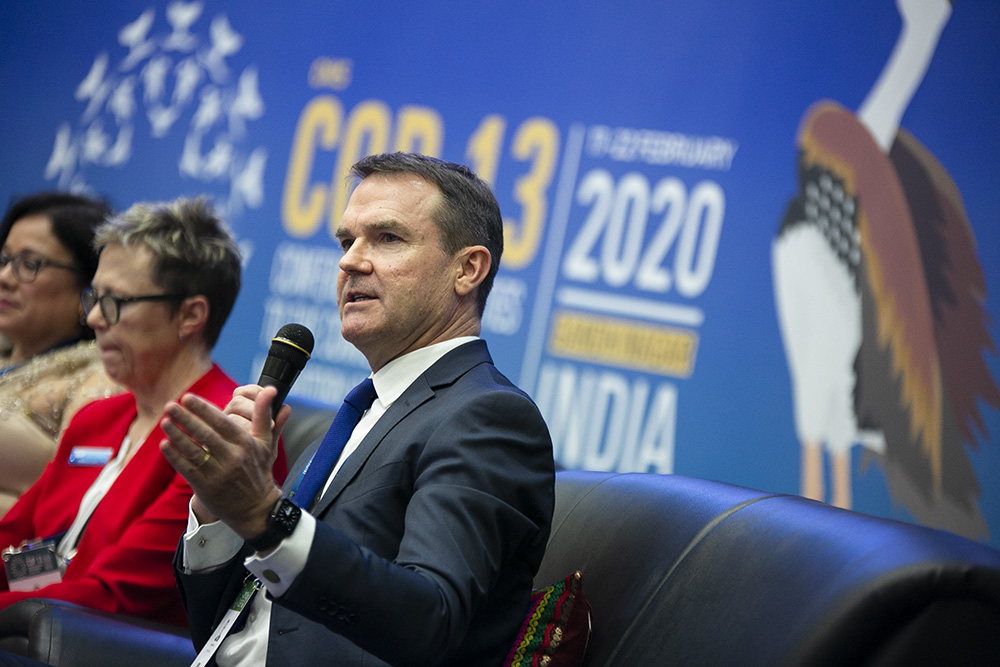
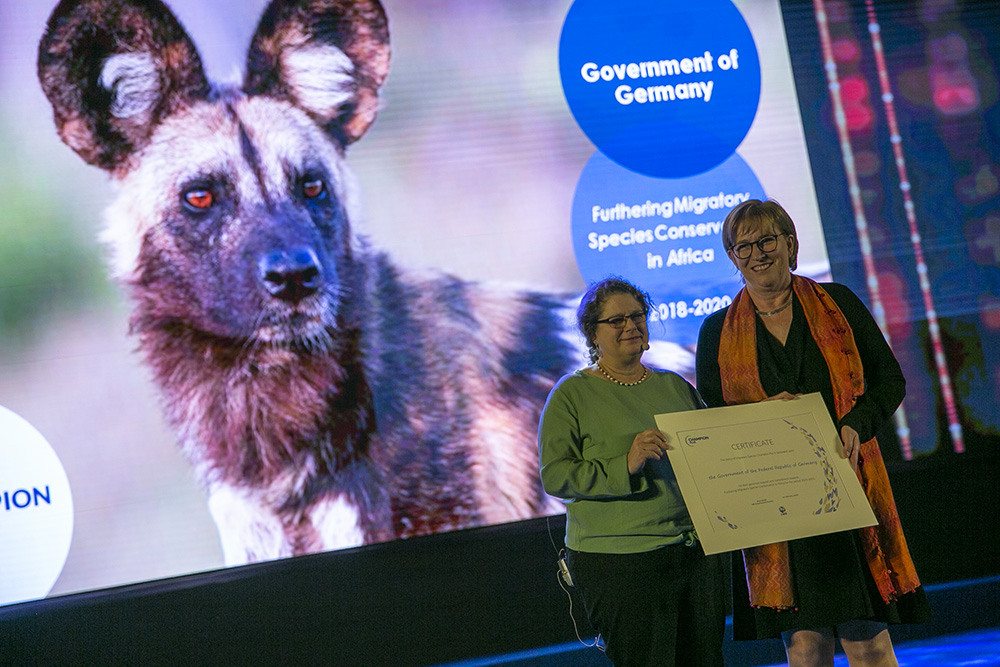
Highlights for Saturday, 15 February 2020
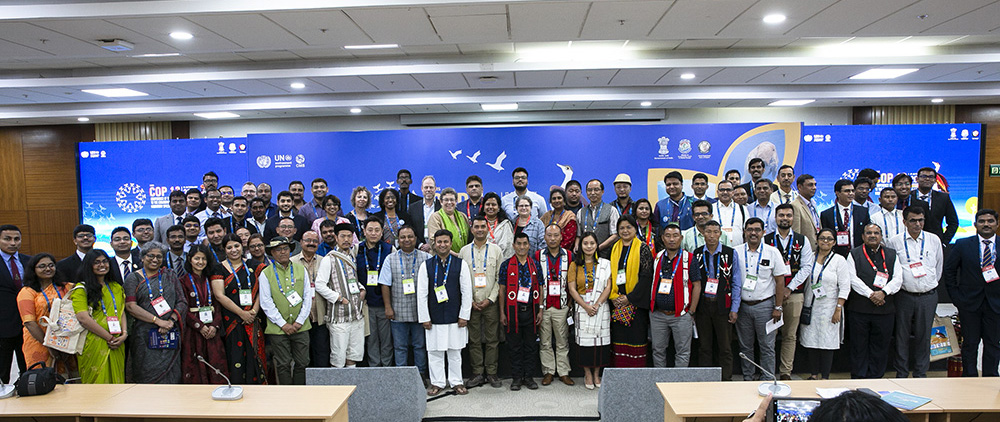
Member states, non-governmental organizations and intergovernmental organizations convened in the afternoon for a Stakeholder Dialogue on the Post-2020 Global Biodiversity Framework, part of a series of events held prior to the thirteenth meeting of the Conference of the Parties to the Convention on the Conservation of Migratory Species of Wild Animals (CMS COP13).
Soumitra Dasgupta, Ministry of Environment Forest and Climate Change, India, welcomed participants and highlighted that India’s commitment to protecting wildlife is ingrained in its constitution. He noted the importance of community partnerships for wildlife conservation, emphasizing that he has seen former poachers transformed into "ardent protectors" of wildlife. Jochen Flasbarth, Federal Ministry for the Environment, Nature Conservation and Nuclear Safety, Germany, emphasized that CMS can act as an ambassador for multilateralism, since it is easy to understand why collaboration between states is required to protect migratory species.
Sue Lieberman, Wildlife Conservation Society, stressed the importance of CMS COP13 in raising the visibility of migratory species issues at the fifteenth meeting of Conference of Parties to the UN Convention on Biological Diversity (CBD COP15) in 2020 in Kunming, China, which will adopt a Post-2020 Global Biodiversity Framework.
Amy Fraenkel, CMS Executive Secretary, reviewed CMS’ engagement in the development of the Post-2020 Global Biodiversity Framework, stressing the “once in a decade opportunity” that CBD COP15 presents to fill gaps in the global biodiversity agenda.
Nicola Crockford, Royal Society for the Protection of Birds, highlighted the crucial role of NGOs and civil society across the international and national level. Ward Hagemeijerm, Wetlands International, expressed concern at the lack of public attention awarded to biodiversity, fearing that people take it for granted, remaining oblivious to how we depend on it and are impacted by its loss.
The panel then engaged in a discussion with the audience. Sonali Ghosh, Ministry of Environment, Forest, and Climate Change, India, introduced the open discussion which explored how:
- sea turtle conservation work undertaken by communities can be enhanced under CMS, including through the Memorandum of Understanding on the Conservation and Management of Marine Turtles and their Habitats of the Indian Ocean and South-East Asia;
- women's contributions to the conservation of the greater adjutant stork could be leveraged with an inter-jurisdictional action plan; and
- awareness raising on the role of migratory species such as the amur falcon in other countries around the globe can support local conservation efforts through behavioural change.
In closing the Stakeholder Dialogue, Sue Lieberman emphasized how conservation of migratory species is about connectivity; connecting people and connecting wildlife, as well as engaging with local communities and governments.
For more details on the day’s negotiations and to hear what delegates said in the corridors, see our daily Earth Negotiations Bulletin.
+ Visit the web coverage for Saturday, 15 February 2020
Photos by IISD/ENB | Sean Wu
For photo reprint permissions, please follow instructions at our Attribution Regulations for Meeting Photo Usage Page
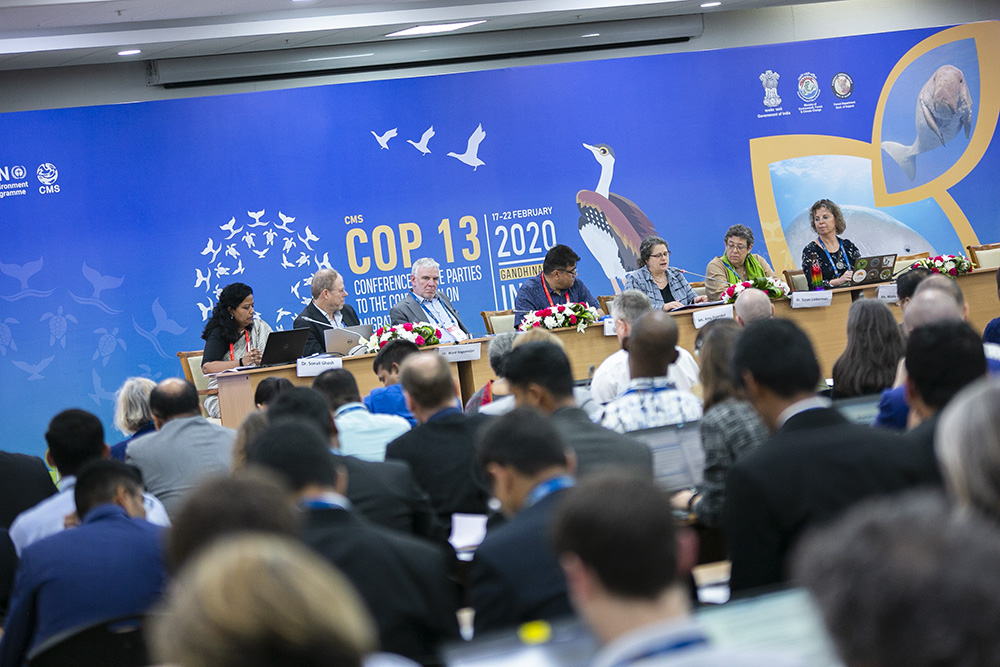
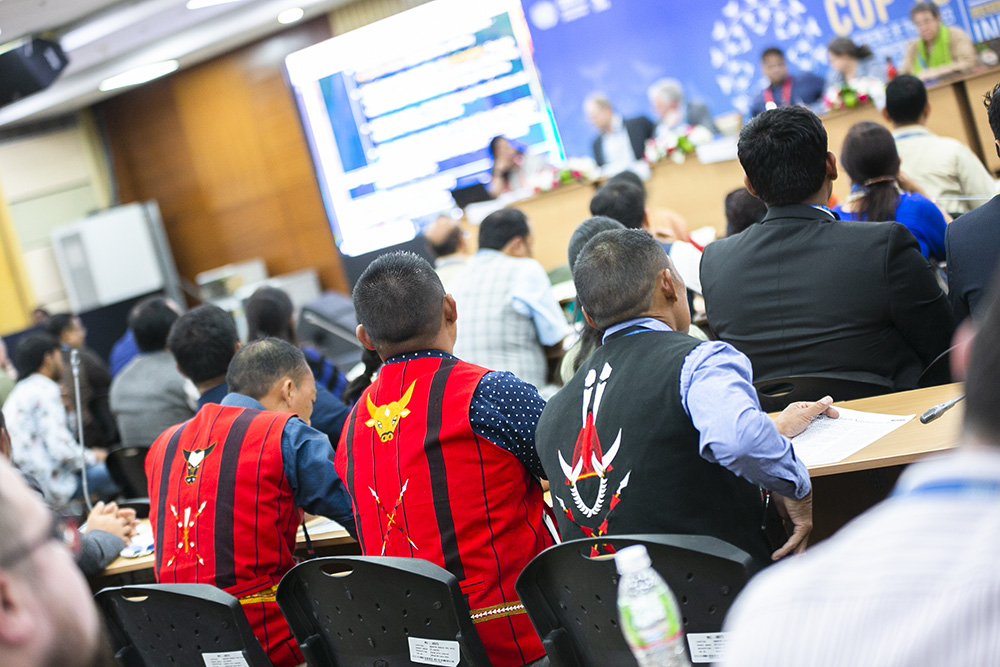
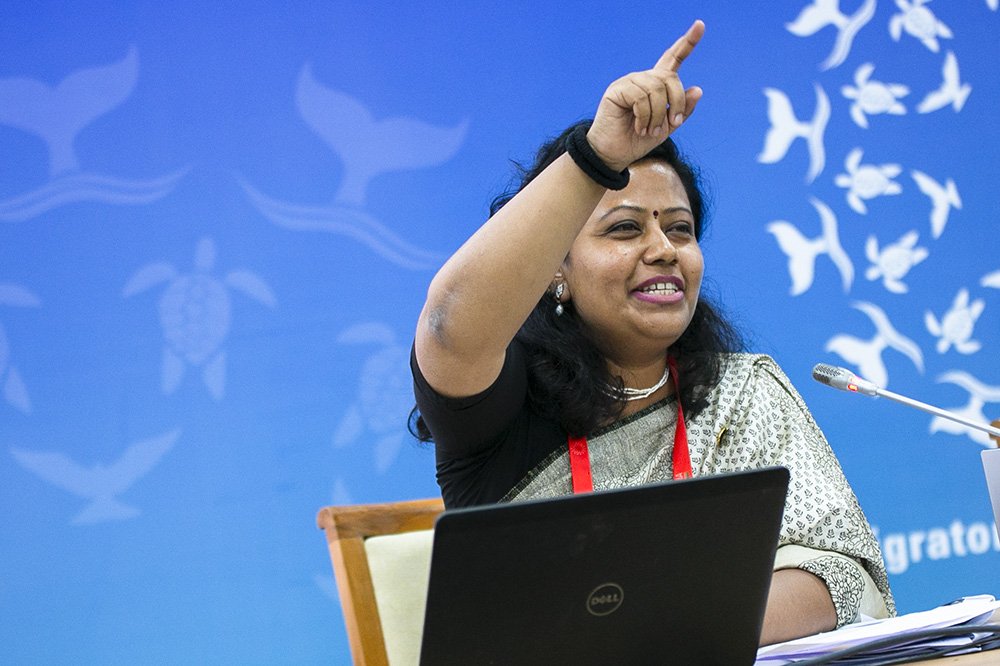
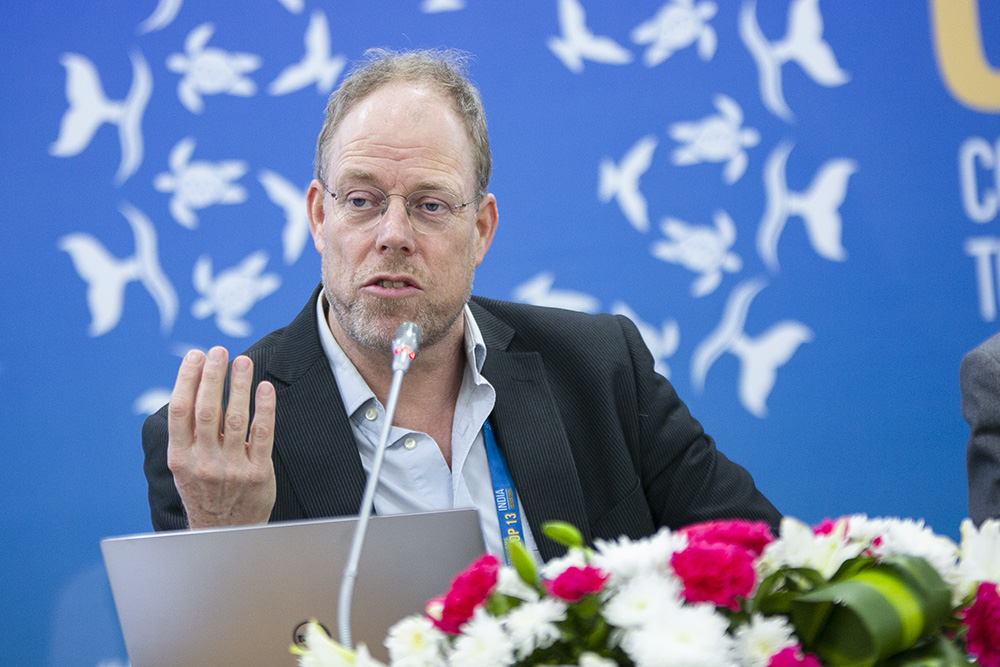
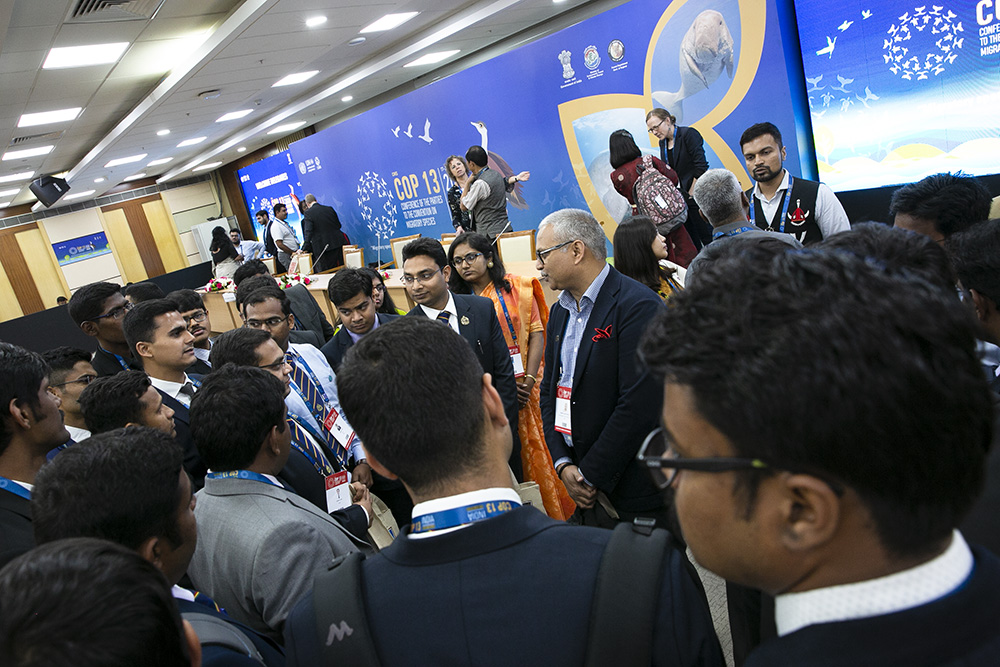
CMS Resources
- CMS COP13 Website
- Provisional Agenda
- CMS COP13 Documents
- CMS COP13 Overview Schedule
- Proposals for the Amendment of the Appendices of the Convention
- CMS COP13 Side Events and Exhibitions
IISD ENB/ENB+ Meeting Coverage
- 3rd Meeting of the Signatories to the Memorandum of Understanding on the Conservation of Migratory Sharks (Sharks MOS3), 10-14 December 2018, Monaco
- CMS COP12, 23-28 October 2017, Manila, the Philippines
- Sharks MOS2, 15-19 February 2016, San José, Costa Rica
- 2nd Meeting of the Signatories (MoS2) to the CMS Memorandum of Understanding Concerning the Conservation of Migratory Birds of Prey in Africa and Eurasia (Raptors MoU), 5-8 October 2015, Trondheim, Norway
- CMS COP11, 3-9 November 2014, Quito, Ecuador
- 1st Meeting of Signatories (MoS1) to the UN Environment Programme (UNEP)/CMS Raptors Memorandum of Understanding (MoU), 9-11 December 2012, Abu Dhabi, United Arab Emirates (UAE)
- Sharks MOS1, 24-27 September 2012, Bonn, Germany
- CMS COP10, 19-25 November 2011, Bergen, Norway
- Coverage of Selected Side Events at CMS COP10, 21-25 November 2011, Bergen, Norway
- 3rd Meeting on International Cooperation on Migratory Sharks (SHARKS III) under the CMS, 8-12 February 2010, Manila, Philippines
- 2nd Meeting on International Cooperation on Migratory Sharks Under the CMS (SHARKS II), 6-8 December 2008, Headquarters of the Food and Agriculture Organization to the UN (FAO), Rome, Italy
- CMS COP9, 1-5 December 2008, FAO headquarters, Rome, Italy
- CMS COP8, 20-25 November 2005, UNEP headquarters, Nairobi, Kenya
- IISD Reporting Services Archive of CMS Meetings
IISD Resources
- Subscription Page for IISD Reporting Services Peer-to-Peer Mailing Lists (including BIODIVERSITY-L, SDG, CLIMATE-L, OCEANS-L, and Regional Updates)
- SDG Update Newsletter - A compilation of news, commentary and upcoming events published on the SDG Knowledge Hub
- SDG Knowledge Hub - An Online Resource Center for News and Commentary Regarding the Implementation of the United Nations’ 2030 Agenda for Sustainable Development, including all 17 Sustainable Development Goals (SDGs)
- Linkages Update - International Environment and Sustainable Development News
- Specific funding for ENB coverage of CMS COP13 has been provided by the CMS Secretariat and the Indian Environment Ministry
